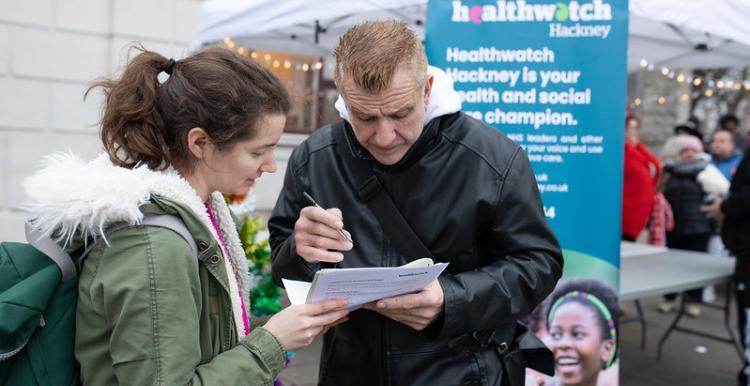What should you expect from the NHS when it comes to accessible information?

The aim of the AIS is to make sure that disabled people and who have a sensory impairment get information about their health in a way they can access and understand, and any communication support that they need.
This includes making sure that people get information in accessible formats if they need it, for example in large print, braille, easy read or via email.
It also includes appropriate support to help individuals communicate, for example, support from a British Sign Language (BSL) interpreter, deafblind manual interpreter or an advocate.
All organisations that provide NHS or publicly funded adult social care services, including hospitals and GPs, must have ‘due regard’ to the new standard.
Six things that you should expect from organisations that provide NHS or adult social care:
- You should be asked if you have any communication needs, and asked how these needs can be met
- Your needs should be recorded in a clear and set way.
- Your file or notes should highlight these communication needs so people are aware and know how to meet them.
- Information about your communication needs should be shared with other providers of NHS and adult social care, when they have consent or permission to do so.
- Information should be delivered to you in a way you can access and understand, with the option for communication support if needed.
- All organisations must have a senior AIS lead and must review how they are meeting the Accessible Information Standard. They should use the Self Assessment Frameworks to monitor how well they are implementing the AIS.
Find out more about the Accessible Information Standard.
What do I do if my communications needs are not met?
If you believe your local health service is failing to meet your communications needs, there are a number of things you can do:
- Give feedback or make a formal complaint via the NHS or council complaints processes – read our guide here on making a complaint.
- Share your experience with your local Healthwatch team or the Care Quality Commission, which inspects services, as they could use it to build a picture of problems with certain services and take further action
- Contact a local councillor or your local MP.
You can also contact the following organisations for support you if you have a disability or sensory impairment:
RNIB – for people who have a visual impairment.
RNID – for people who have a hearing impairment.
SignHealth – for deaf people.
Sense – support for people who are deafblind.
Mind - support for people living with mental health problems.
Our role
Healthwatch has been advocating for a better AIS, working with leading national charities, including RNIB, RNID, Mind and SignHealth. We will continue to press for the government to make the AIS fully mandatory for health and care organisations, which would require new regulations to come into force.
We are committed to making sure all our information is clear and accessible for everyone. It is vital that anybody who wants to find out about our work is able to do so.



